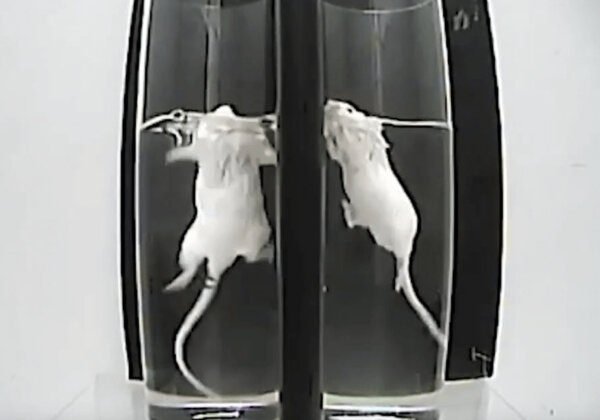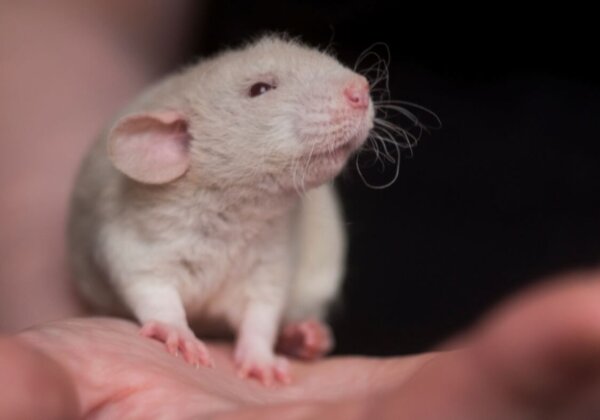China Proposes End to Tests on Animals for Many Imported Cosmetics
UPDATED:
The Chinese government just announced that it has created a new pathway for cruelty-free cosmetics in China. Specifically, as of May 1, it allows companies to market most imported general cosmetics (formerly classified as “non–special use cosmetics”)—like shampoo, body wash, lipstick, lotion, and makeup—without the usually required animal testing.
This is great progress, but it doesn’t mean the end of all tests on animals yet. Companies must take a number of steps and apply for the exemption to the animal testing requirements for imported general cosmetics. Companies that don’t take these steps or don’t qualify for the exemption will still be required to pay for tests on animals for their products. Additionally, companies manufacturing “special cosmetics” (formerly called “special use cosmetics”) are still required to pay for tests on animals. Special cosmetics are those making functional claims, such as “hair dyes, hair perming products, freckle-removing and whitening products, sunscreens, anti-hair loss products and cosmetics claiming new efficacy.” So while the finalization of the animal testing regulations under the Cosmetic Supervision and Regulation is an exciting milestone, animals used in experiments still need our help.
Originally published on August 27, 2020:
In 2012, PETA US revealed that some formerly cruelty-free companies had covertly started paying the Chinese government to test their products on animals in order to sell them in China. Every year, experimenters subject hundreds of thousands of animals to cruel and deadly poisoning tests in which they’re force-fed products, chemicals are smeared on their skin, or substances are dripped into their eyes.
Now, the Chinese government is taking new steps to loosen its requirements for cosmetics tests on animals—specifically, it’s predicted that China will no longer require that imported non–special use cosmetics (like shampoo, body wash, lotion, and makeup) be tested on animals in order to be marketed in the country.
China had already removed the animal-testing requirement for many products manufactured there, enabling brands like Dove and Herbal Essences to be listed as animal test–free. Now it’s proposed another huge cruelty-free step forward.

Here’s the Details on China’s Potential Cosmetics Regulations
In January 2020, China’s State Council passed a long-awaited final draft of the Cosmetic Supervision and Regulation (CSAR), which replaces the outdated cosmetics regulations. The final publication of the law and text implementing it were delayed because of the COVID-19 pandemic, but on June 29, 2020, the State Council released the final version of the CSAR.
However, the text didn’t call for a ban on animal tests—instead, it instructed another government agency, China’s National Medical Products Administration (NMPA), to formulate specific details for the testing requirements under the law. On July 28, 2020, the NMPA released the draft of those detailed sub-regulations, and they are currently up for analysis and public comment.
It’s expected that, if passed, the forthcoming rules will allow for the sale of many imported cosmetics that won’t have to be tested on animals. If this is the case, we’ll celebrate the progress, as we have with every new measure that has spared animals being poisoned in tests inside Chinese laboratories.
Here’s some background: after learning eight years ago that companies like Estée Lauder and Mary Kay paid the bill for deadly poisoning tests on animals in China, PETA affiliates took action. Realising that Chinese scientists were unfamiliar and uncomfortable with the many non-animal tests available, PETA US awarded two grants to the Institute for In Vitro Sciences(IIVS) so that its expert scientists could travel to China to offer their expertise and guidance in replacing cruel, unreliable animal tests with non-animal methods. The grant also allowed the IIVS to create a coalition of cosmetics companies to support its efforts. Since then, the IIVS and its coalition have made great progress.

Does this mean that China will be entirely animal test–free?
While this could mean exciting progress, it doesn’t mean the end of all tests on animals in China yet. Companies manufacturing “special use products” will still be required to pay for such tests. Special use cosmetics are those with functional claims, including but not limited to hair dyes, hair perms, whitening products, sunscreen products, and anti–hair loss products. So while the passing of the CSAR is an exciting milestone, animals used in experiments still need our help.
What does China’s new testing regulation mean for you as a consumer?
We know it can be tricky to figure out which products are manufactured by companies that don’t test on animals, but you can rely on the Global Beauty Without Bunnies list. The online searchable database includes more than 4,800 compassionate companies and brands that don’t test on animals anywhere in the world.
You can download the Bunny Free app here:
Do More to Help Animals Used in Experiments
The best way to persuade companies to stop using animals is to refuse to purchase their products and to write and tell them why you won’t be using their eye shadow, detergent, shampoo, etc.
Meanwhile, PETA is urging pharmaceutical giant Eli Lilly to stop using mice, rats and other small animals in forced swim tests. Will you join us?







